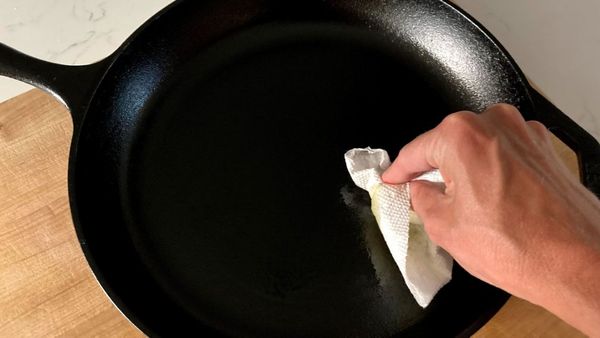Cast iron frying pans have been a beloved kitchen essential for many years. They are sturdy, reliable, and built to last. With proper care, cast iron cookware can stand the test of time. Even more impressive is that these pans can develop their natural nonstick surface when seasoned, making them incredibly versatile.
But just because they’ve been around for a while doesn’t mean they’re outdated. Let’s dive into why cast iron pans are still an excellent choice for those who love using them.
Holding the Heat for a Heartwarming Meal
One of the standout features of cast iron pans is their exceptional heat retention. Once heated, these pans keep your food hot and delicious. It’s important to note that they take a little longer to warm up and cool down. Also, cast iron pans are heavy, so it’s always best to handle them carefully.
Versatility: Cooking for Every Occasion
Cast iron pans are incredibly versatile and can be used on various heat sources. These pans work wonders whether using a gas, electric, or induction stove. You can even place them directly in the oven, perfect for stove-to-oven dishes like frittatas. Moreover, cast iron pans can be used over an open flame, such as a campfire, if you enjoy outdoor cooking. The possibilities are endless!
Easy-Breezy Cleaning
Contrary to popular belief, cleaning cast iron pans is not as intimidating as it seems. Once you get the hang of it, it’s pretty simple. Thanks to their natural nonstick surface, cleaning cast iron pans can be even easier than cleaning cookware made from aluminum or glass.
Variety that’s Pan-tactic
Cast iron cookware comes in a wide array of shapes and sizes. From pots and cake pans to pizza pans and grills, there is a cast iron option for every cooking need. It’s essential to keep this in mind and adjust recipes accordingly if you’re used to other cookware types. The best part is that all cast iron pans have the same qualities of retaining heat and providing a nonstick surface.
Affordable and Built to Last
One of the most significant advantages of cast iron cookware is its affordability. These pots and pans are not only reasonably priced but they are also designed to last. In fact, with proper care, cast iron cookware can last a lifetime.
Additionally, you might stumble upon some remarkable deals on cast iron cookware at secondhand shops or thrift stores. Don’t be discouraged by aged or rusted cast iron pans; they can often be restored to their former glory.
From Oven to Table: Serving with Style
Many cast iron pots and similar items are practical and aesthetically pleasing. They can serve dishes directly to the table, saving you from washing extra dishes.
Numerous eateries use small cast iron frying pans to help mac and cheese, mini pizzas, and shakshouka. Furthermore, cast iron’s excellent heat retention ensures that your meals stay warm throughout the entire meal.
Boosting Iron Intake: A Nutritional Bonus
Research suggests that cooking certain foods in cast iron pans can increase their iron content. While it’s not a cure for iron deficiency anemia, it can benefit those who need to boost their iron levels in addition to supplements and dietary changes.
However, it’s important to note that not all foods cooked in cast iron will have higher iron levels. Foods high in acidity, such as tomato sauce, rice, fried eggs, and applesauce, are more likely to benefit from cooking in cast iron due to enhanced iron absorption.
A Word of Caution and Balance
While cast iron cookware can be a helpful source of iron, it’s essential to consume iron in moderation. Too much iron can adversely affect the body, such as increased production of free radicals. Excessive iron intake is also linked to diseases like heart disease, Alzheimer’s, and colorectal cancer.
Individuals who follow a vegan or vegetarian diet and women who menstruate typically do not need to worry about consuming too much iron.
However, for those who consume a lot of red meat, take fortified foods, or have genetic hemochromatosis, it’s essential to be mindful of iron intake, especially when using cast iron cookware.
Properly seasoning the pans can help limit iron absorption into meals. Notably, seasoned and older cookware is less likely to absorb iron than newer ones.
Tips for Cooking Like a Pro
Among other cooking techniques, cast iron cookware is ideal for searing, baking, frying, roasting, sautéing, and browning. It can be used to make a variety of dishes, including baked items, eggs, and vegetables.



